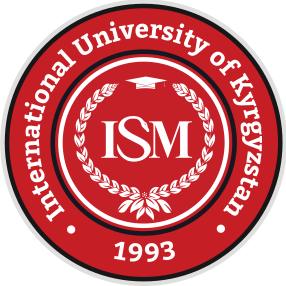- Department of Humanities and Natural Sciences
- Department of Fundamental Disciplines
- Department of Micro and Macro Anatomy
- Department of Public Health
- Department of Pathology
- Department of Pediatrics, Obstetrics and Gynecology
- Department of Special Clinical Disciplines
- Department of Special Surgical Disciplines
- Department of Therapy
- Department of Surgical Diseases
- Department of Infectious Diseases
Department of Micro and Macro Anatomy
Curriculum:
Subsequence:
Disciplines:
The main objectives of studying the discipline are:
- formation of students’ natural science worldview based on general theoretical knowledge in the field of histology, cytology and embryology, which are of fundamental importance for scientific and practical medicine;
- mastering knowledge about the general patterns inherent in the cellular and tissue level of the organization of living matter; about the principles of the development of living matter, histogenesis and organogenesis, the peculiarities of the development of the human embryo; about the subtle (microscopic) level of the structure of human body structures;
- providing the student with the necessary information for further study and understanding of the essence of morphological, functional and clinical changes in diseases and their treatment;
- formation of students’ ability to identify organs, their tissues, and cells at the microscopic level;
- formation of basic skills and abilities when working with a microscope, mastering the stages of histological technique and working with micro-preparations, their description
Total labor intensity: 7 credits (210 hours)
Classroom hours: 126 hours
Independent work of students: 84 hours
Semester: 1,2
Final control: exam
The tasks are: to study the structure, functions and topography of the organs of the human body, anatomical and topographic relationships of organs, their
X-ray image, individual and age-related features of the body structure, including the prenatal period of development (organogenesis), variants of variability of individual organs and malformations of their development. To form students’ knowledge about the interdependence and unity of the structure and function of both individual organs and the body as a whole, about the relationship of the body with changing environmental conditions, the influence of environmental, genetic factors, and the nature of work,
profession, physical culture and social conditions affect the development and structure of the body. To form an integrated approach among students in the study of anatomy and topography of organs and their systems; understanding the structure of the human body as a whole as the relationship of individual parts of the body; ideas about the importance of fundamental research of anatomical science for applied and theoretical medicine.
Total labor intensity: 12 credits (360 hours)
Classroom hours: 216 hours
Independent work of students: 144 hours
Semester: 1,2
Final control: exam
The objectives of the discipline: The formation of students’ skills to navigate the complex structure of the human body, accurately and accurately find and determine the location and projection of organs and their parts on the surface of the body, the layered structure of the human body, possession of “anatomical material” to understand pathology, diagnosis and treatment. Educating students based on traditional principles
humanism and mercy, respectful and careful attitude to the studied object; organs of the human body, to the corpse; inculcation of highly moral norms of behavior in the sectional halls of a medical university.
Total labor intensity: 2 credits (60 hours)
Classroom sessions: 36 hours
Independent work of students: 24 hours
Semester: 3
Final control: test
The objectives of the discipline:
- to teach the choice of rational surgical access and types of surgical interventions, as well as about possible intraoperative errors and postoperative complications;
- to develop the basic manual skills necessary to perform surgical operations;
- to master basic surgical interventions and some surgical techniques necessary for the provision of medical care, including in emergency situations;
Total labor intensity: 1.5 credits (45 hours)
Classroom sessions: 27 hours
Independent work of students: 9 hours
WED: 9 hours
Semester: 7
Final control: exam
